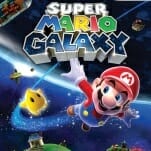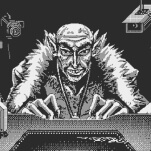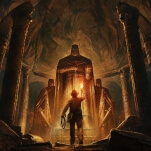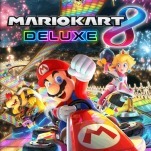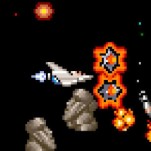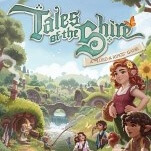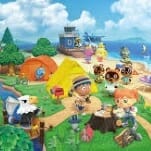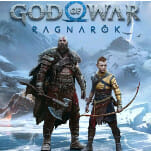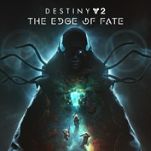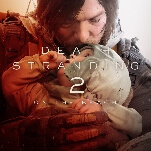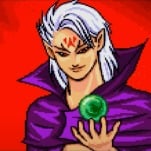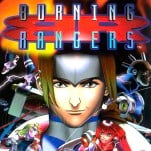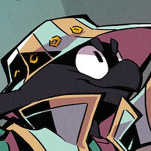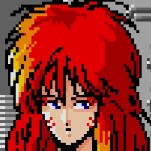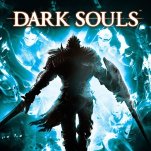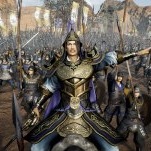The 20 Best Videogames of 2013 (So Far)
From PCs to consoles to mobile devices, there are more ways to play videogames than ever before. That diversity can be seen in our list of the best games to come out in 2013 so far. No matter what technology you own, you’ll find something to play on this list, and hopefully you’ll like it as much as we do.

20. Antichamber
There were moments where it felt like the ‘god’ of Antichamber was dangling a carrot in front of me and laughing as I failed again and again to reach it. But the more I paused to consider the signs left behind, the more my eyes were opened to possibilities I probably wouldn’t have considered on my own. In this sense, Antichamber suggests that we can choose to let the unfortunate circumstances of life cripple us or we can refuse to bow to them and make our own way.—Drew Dixon

19. Rising Storm
Rising Storm is one of the most realistic simulations of World War II battle not just in aesthetics but in spirit. It encompasses the important aspects of the military from tactical strategy, to weaponry, to teamwork. It’s more than just a game. It’s practically real life.—Carli Velocci

18. Bioshock Infinite
Infinite reinforces Bioshock’s greatest revelation: No major studio is better at atmosphere and art design than Irrational Games. From the bright and idyllic town squares, neocolonial architecture and massive statuary of Columbia’s wealthier precincts, to the decaying slums of the impoverished industrial zone Finkton, Infinite introduces a glorious and instantly iconic setting, and eventually asks you to kill almost every living thing within.—Garrett Martin

17. Remember Me
Remember Me has a lot to offer narratively and thematically. Many videogames are metaphorically about videogames already, but Remember Me manages to go beyond just that initial trope to also juggle a narrative about class, corporations and systems of power.—Maddy Myers

16. Battleblock Theater
If Battleblock was just a mechanically and conceptually sound expansion on game ideas we’ve blasted through since jungle gym days, it’d be one of a dozen interchangeable indie nostalgia fests. Yes, its puzzles are vexing, their solutions satisfying, the fingerwork precise and the difficulty curve a respectful and gentle slope. Just as important, though, is that Battleblock nails an irreverent and anarchic spirit that few games pull off well. The game’s got charm, and that’s worth battling for.—Garrett Martin

15. State of Decay
The theme of any zombie fiction worth reading or watching is that, when there are so few people left in the world, each life assumes an importance well beyond its usual preciousness. State of Decay made me terrified of losing even a single individual because I understood this lesson, and thus it’s as perfect a simulation of a zombie apocalypse as it needs to be.—Dennis Scimeca

14. Tomb Raider
This reboot of Tomb Raider, with its experimental juxtapositions of different kinds of play, as well as its attempts to redefine Lara Croft as a human being rather than a caricature of a sexual femininity, feels like the first step on a shaky path towards a better franchise.—Maddy Myers

13. Towerfall
This multiplayer scrum (and Ouya exclusive) is a frantic four-way archery duel, like a single-screen Smash Bros. with a retro aesthetic and arrows instead of fists. Towerfall is intentionally limited to local-only play, which is a bummer if you don’t have friends over. Once you a get a group together, though, it’s as tense and trash-talkingly fun as the Mario Kart and Goldeneye bouts of our collective memory.—Garrett Martin

12. Proteus
Proteus asks us to actually pay attention to our surroundings, even if nothing outwardly exciting or memorable is happening. It expects us to care and think about how we interact with nature. It doesn’t attempt a realistic recreation of our world, but its chimerical approach makes us ponder the mysteries of nature. It recalls an earlier time, before science and technology made the world a less mystical and esoteric place (while also making computer gizmos like Proteus possible).—Garrett Martin

11. Warhammer Quest
The high production value speaks to the attention to detail evident in the design. There’s nothing revolutionary about Warhammer Quest’s mechanics—each character can move a certain number of spaces and attack a certain number of times per turn before the monsters get a go, rinse and repeat—but they are executed so solidly and intuitively that the rhythm of play feels almost immediately familiar.—JP Grant
-

-

-

-

-

-

-

-

-

-

-

-

-

-

-

-

-

-

-

-

-

-

-

-

-

-

-

-

-

-

-

-

-

-

-

-

-

-

-

-












